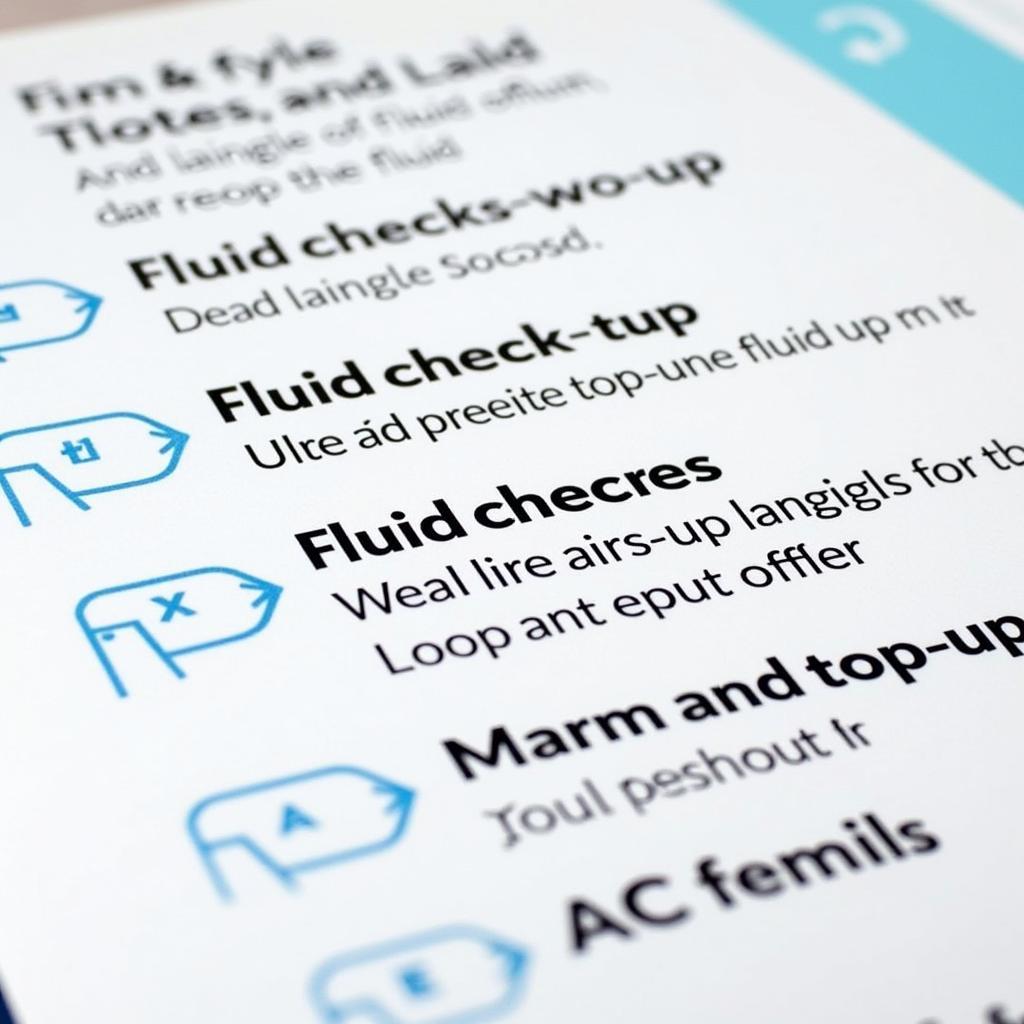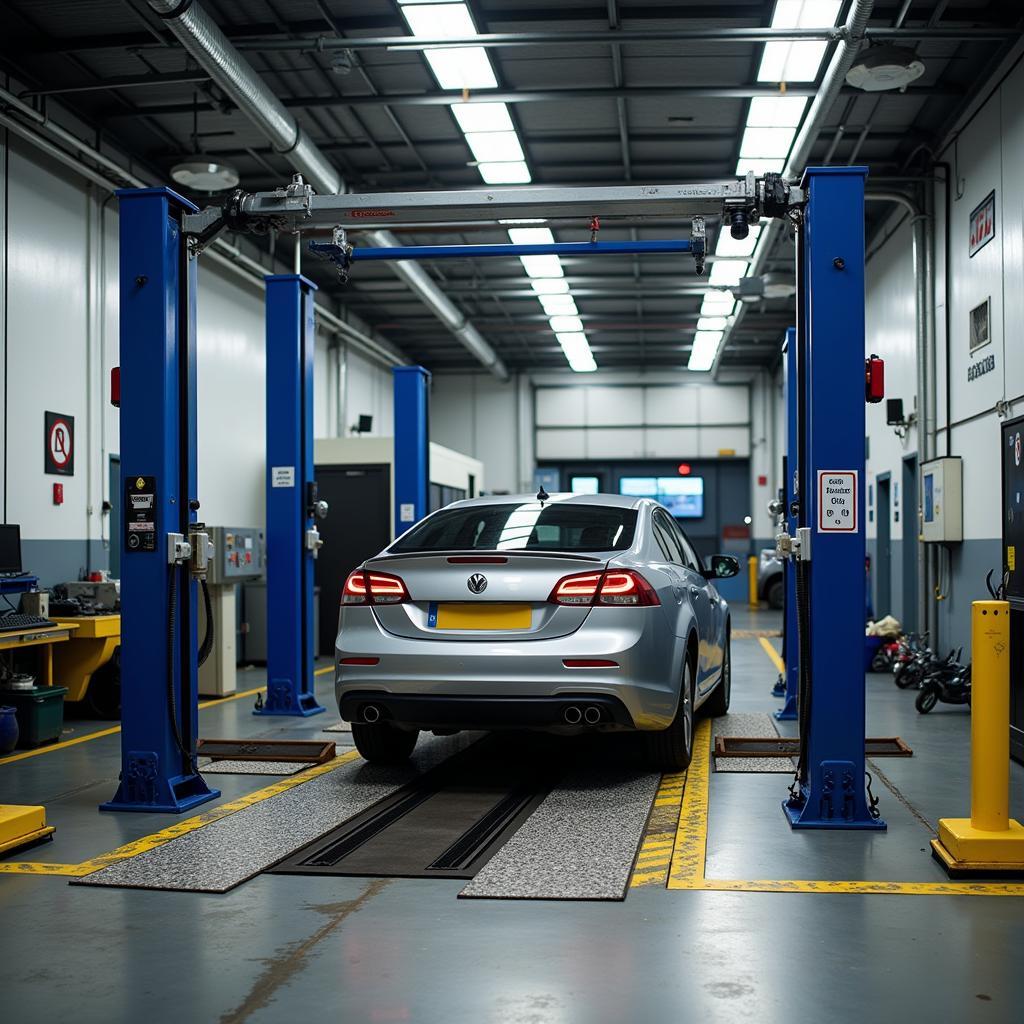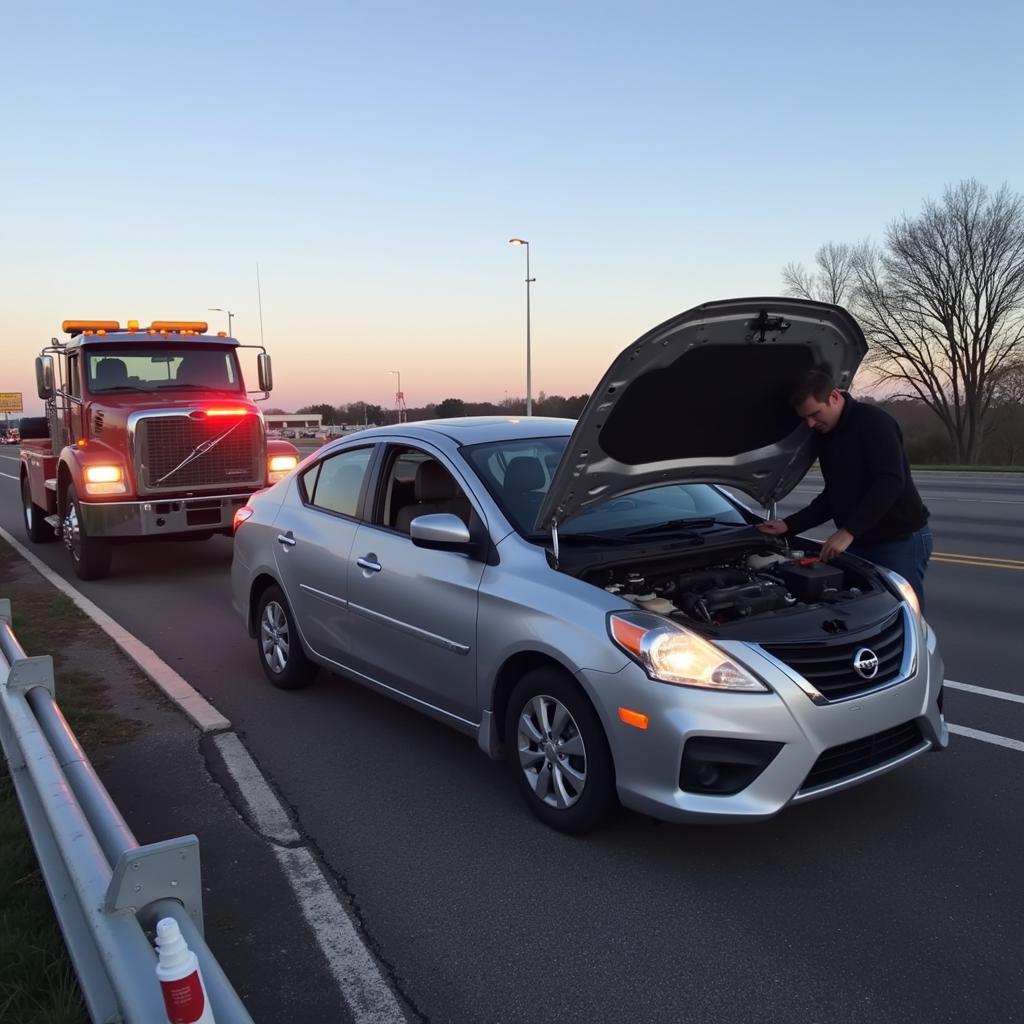Are Fluids Covered in Car Service? A Comprehensive Guide
When you take your car in for service, it can be confusing to understand exactly what’s included, especially when it comes to fluids. Are Fluid Covered In Car Service? The answer isn’t always straightforward. It depends on the type of service, your car’s make and model, and even the specific service center you choose. This comprehensive guide aims to clarify everything you need to know about fluids in car service, helping you make informed decisions for your vehicle’s health and your wallet.
Understanding the Role of Fluids in Your Car
Before delving into whether fluids are covered, it’s crucial to understand their importance. Your car relies on various fluids to function correctly. These fluids lubricate moving parts, cool the engine, transmit power, and ensure optimal performance.
Here’s a breakdown of common car fluids and their functions:
- Engine Oil: Lubricates engine components, reduces friction, and prevents overheating.
- Coolant: Regulates engine temperature, preventing overheating and freezing.
- Brake Fluid: Transmits force from the brake pedal to the brakes, enabling safe stopping.
- Transmission Fluid: Lubricates and cools the transmission system for smooth gear changes.
- Power Steering Fluid: Assists in steering, making it easier to turn the wheel.
- Windshield Washer Fluid: Cleans the windshield for optimal visibility.
Types of Car Service and Fluid Inclusion
Car service isn’t a one-size-fits-all concept. There are different levels of service, each with varying inclusions and exclusions. Let’s explore the common types:
1. Basic Oil Change
Contrary to its name, a basic oil change often includes more than just replacing the engine oil. Most service centers will also:
- Replace the oil filter.
- Top off essential fluids like windshield washer fluid.
- Perform a visual inspection of other fluids, noting their levels and condition.
Are fluids covered in car service during a basic oil change? Generally, only topping off fluids is included. If a fluid needs replacement due to contamination or low levels, it might be an additional cost.
2. Interim Service/Minor Service
This service level goes a step further than a basic oil change. It usually includes:
- Oil and filter change.
- Comprehensive fluid level checks and top-ups (including brake fluid, coolant, and power steering fluid).
- Visual inspection of brakes, tires, belts, and hoses.
While minor services often involve more extensive fluid checks and top-ups, complete fluid replacements might still be extra, particularly for transmission fluid or coolant.
 Car Service Checklist
Car Service Checklist
3. Full Service/Major Service
As the name suggests, this service is the most comprehensive. It usually includes:
- Oil and filter change.
- Replacement of various filters (air, fuel, cabin).
- Spark plug replacement (if applicable).
- Thorough inspection of all major components, including fluids.
Do you really need to cancel your car service appointment if your car seems fine? While it’s tempting to skip servicing when your car appears to be running smoothly, regular maintenance, including fluid checks and potential replacements, is crucial for preventing major issues down the line.
Fluid Replacement Intervals: What You Need to Know
Each fluid in your car has a recommended replacement interval. These intervals can vary significantly depending on your car’s make and model, driving conditions, and the type of fluid.
- Engine Oil: Every 3,000 miles or 3 months (conventional oil) or every 5,000-7,500 miles or 6 months (synthetic oil).
- Coolant: Every 30,000 miles or 2 years.
- Brake Fluid: Every 30,000 miles or 2 years.
- Transmission Fluid: Every 30,000-60,000 miles (automatic transmission) or every 60,000-100,000 miles (manual transmission).
- Power Steering Fluid: Every 30,000-60,000 miles.
It’s essential to consult your owner’s manual for the specific fluid replacement intervals recommended for your vehicle. Adhering to these schedules ensures your car’s fluids remain in optimal condition, preventing premature wear and potential damage to vital components.
how much is a full service for a car
Factors Affecting Fluid Coverage in Car Service
Now that we’ve covered the basics, let’s delve into the factors that can influence whether fluids are covered in your car service:
1. Service Package
As discussed earlier, different service packages offer varying levels of fluid inclusion. Always review the specific services and inclusions listed in a service package before making a decision.
2. Car Make and Model
Luxury or high-performance vehicles often require specialized fluids, which might not be included in standard service packages and could come at an additional cost.
does kia warranty include car servicing
3. Service Center
Independent garages, dealerships, and specialized service centers might have different policies regarding fluid inclusion in their service packages.
4. Fluid Condition
If a fluid is excessively dirty, contaminated, or below the minimum level, it will likely need replacement, which might not be fully covered in the service cost.
does car insurance cover service
Tips for Managing Car Fluid Costs
Keeping your car’s fluids in check doesn’t have to break the bank. Here are some tips to help you manage costs:
- Regular Checks: Get into the habit of checking your fluid levels regularly (at least once a month).
- Understand Your Manual: Your owner’s manual is your best friend. It outlines recommended fluid types and replacement intervals for your specific vehicle.
- Shop Around: Don’t hesitate to compare prices for fluid replacements from different service centers.
- Ask Questions: Before agreeing to any service, clarify with the service advisor what’s included, especially regarding fluids. Don’t be afraid to ask for an itemized breakdown of costs.
Conclusion: Keeping Your Car Running Smoothly
Understanding the role of fluids and their inclusion in car service is essential for maintaining your vehicle’s health and longevity. By being proactive, asking the right questions, and staying informed about your car’s specific needs, you can ensure your car continues running smoothly for miles to come.
FAQs:
1. Is it cheaper to get fluids changed at the dealership?
Not necessarily. While dealerships might use manufacturer-recommended fluids, independent garages can offer competitive prices and often use fluids of comparable quality.
2. Can I top off my car fluids myself?
Yes, you can top off some fluids like windshield washer fluid. However, others, like brake fluid, require caution and might be best left to professionals.
3. What happens if I don’t change my car fluids?
Failing to replace fluids on schedule can lead to reduced performance, overheating, costly repairs, and even complete component failure.
4. Can I use any type of fluid for my car?
No. Using the wrong type of fluid can damage your car’s systems. Always consult your owner’s manual for the recommended fluid specifications.
5. How often should I get my car serviced?
Refer to your owner’s manual for recommended service intervals. Generally, a basic service every 6 months or 5,000 miles and a major service annually or every 10,000 miles is a good starting point.
Need expert advice on car fluids or service? Contact us via WhatsApp: +1(641)206-8880, Email: [email protected]. Our 24/7 customer support team is here to assist you.

